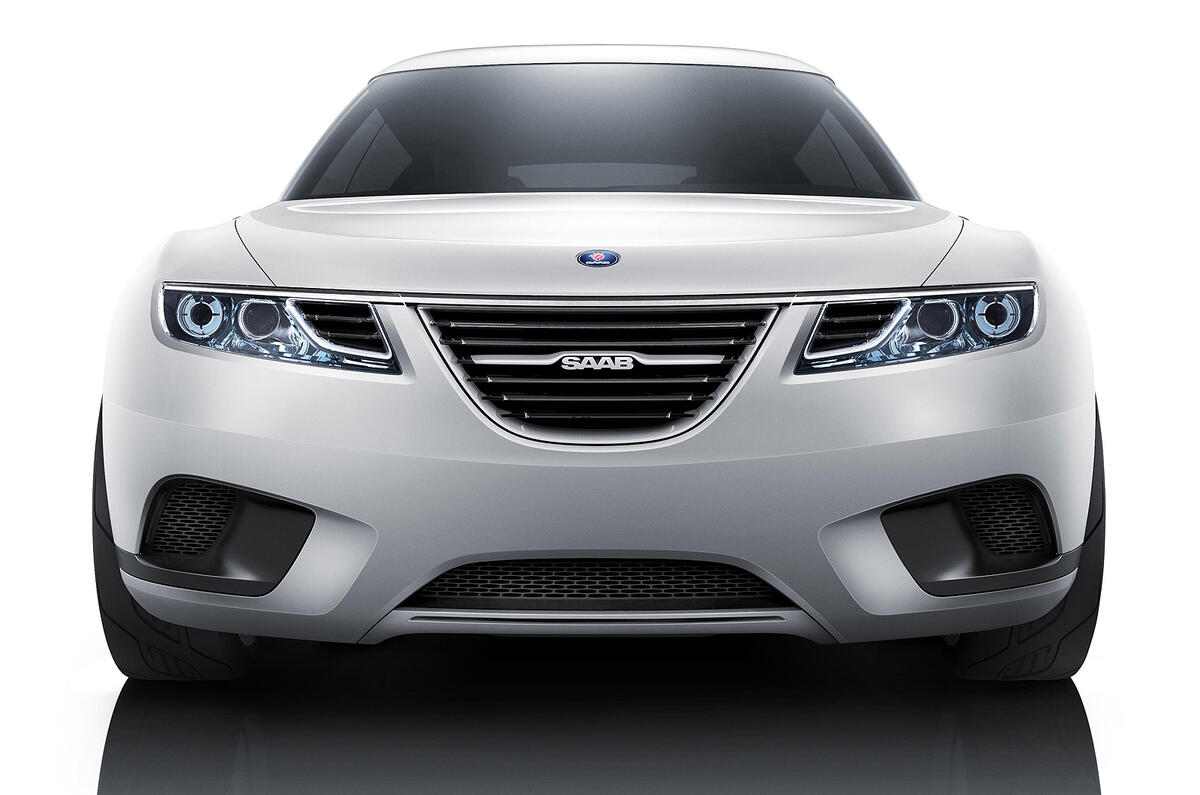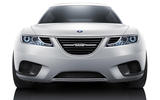The all-new Saab 9-3 will be launched with a least one UK-built BMW engine under the bonnet, it was revealed this morning.
The new 9-3 is due to go on sale at the very end of 2012 and will feature the 1.6-litre turbocharged petrol engine currently used in the Mini range.
Saab will only confirm use of the 200bhp version of the N18 engine so far, but further versions are likely, including a variant that runs on E85 biofuel.
It will also incorporate BMW’s fuel-saving stop-start and regenerative braking systems.
Read more on the Saab/BMW tie-up
A team of BMW and Saab engineers has already been formed to work on the installation of the engine in Saab’s next-generation platform.
Around 200,000 of these 200bhp engines will be supplied over the life of the next-generation 9-3, but it’s also likely to be used in the next-generation 9-5 expected in early 2015.
Saab sources refused to reveal who would supply future diesel engines to the company for the new 9-3, but the final green light for the deal is said to be imminent.
At the moment Saab uses GM-supplied engines for the 9-3 and 9-5 models but says it wants a variety of suppliers in future.
Saab has a record of buying in existing engines which it then modifies. It used a Ford-sourced V4 for the 95 and 96 in the late 1960s and also used the Triumph 'slant four' engine (also used in the Dolomite and half a Stag V8) in the 99, 900 and first-generation 9000 models.
The "Family Three' engine launched in 1992 and used in the 900, 9000 Mk2 and first-gen 9-3 was utimately based on the Triumph unit, but didn't use a single share component.
Saab has, though, been know for its innovative engine technology including advanced turbocharging systems, direct ignition and powerful Trionic engine management systems.
Saab Automobile chairman Victor Muller, whose buy-out of Saab prevented its demise earlier this year, said the use of a BMW-sourced engine would “raise the premiumness of the brand”.
Muller added that ‘Saab is now making decisions that are just good for Saab’, rather than being good for the wider General Motors family.
Speaking at Saab’s Trollhattan HQ, Ian Robertson, BMW’s board member for sales and marketing, said that the deal was part of the German maker’s strategy to increase engines sales to outside carmakers.









Join the debate
Add your comment
Re: Saab, BMW in engine tie-up
Wait till we get in to compression charged ignition on petrol cars (HCCI). (approx. 2 years away) then we'll see some problems with companies and supermarkets selling low grade fuel.
Re: Saab, BMW in engine tie-up
Re: Saab, BMW in engine tie-up